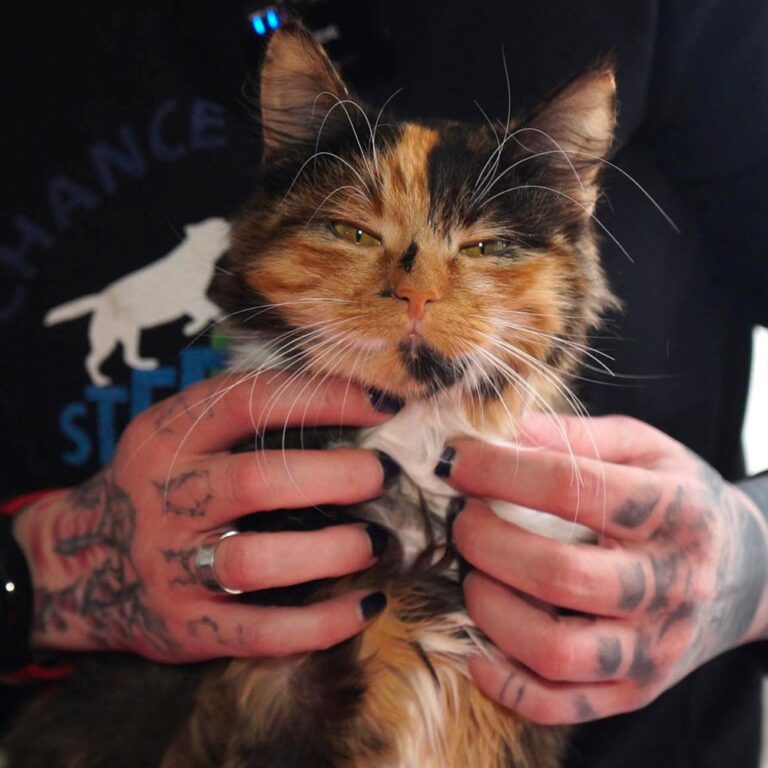
The full-scale Russian invasion has drastically increased the number of abandoned animals in Ukraine. Some pets are directly harmed by the enemy shelling, while others lose their homes and owners due to hostilities. Despite the unprecedented challenges posed by the war, Ukrainians are not abandoning animals in need. They rescue pets, often risking their health and lives. Activists regularly undertake rescue missions to the areas affected by Russian shelling or temporary occupation to evacuate animals. One such organisation, ZooPatrul, has transformed from a volunteer initiative into a fully-fledged organisation, running two veterinary clinics and a European-style shelter within just one year.
The issue of stray animals existed in Ukraine long before the full-scale war. Unfortunately, it often went unnoticed and unaddressed. Shelters were frequently overcrowded, and the culture of responsible pet ownership was not well established. It is still not uncommon for newborn pets to be abandoned by their owners or even discarded by animal breeders.
The suffering of animals has been exacerbated by the full-scale war; due to hostilities, many pets are left without homes or proper care, face danger, or often lose their owners to Russian shelling. The research conducted by the Save Pets of Ukraine initiative reveals that the number of frontline animals under volunteer care has increased by 60% as of February 2023. In comparison, the number of animals in shelters has doubled over the same period. Most animals sheltered during the full-scale invasion are pets abandoned by their owners during evacuation. In response to this crisis, animal protection organisations in Ukraine are actively working to provide aid.
For instance, the Kharkiv-based NGO Animal Rescue has been aiding pets for seven years. Initially, the organisation focused on rescuing abandoned and injured animals in Kharkiv. However, with the onset of the full-scale invasion, the initiative expanded its operations and now carries out animal rescue missions in war-affected areas.
Another major entity, the Kyiv Animal Rescue Group (KARG), has been operating in the capital since 2014. Initially launched as a private initiative of two volunteers, Mykhailo Storozhuk and Liubov Kravchuk, it has since grown into a public organisation dedicated to rescuing animals. KARG has been active since the beginning of the 2014 Russian invasion and expanded its operation following the all-out war. For instance, during the spring of 2022 alone, the team made six trips to the frontline city of Huliaipole, located only seven kilometres from the contact line. Earlier, we covered one of these trips to the town.
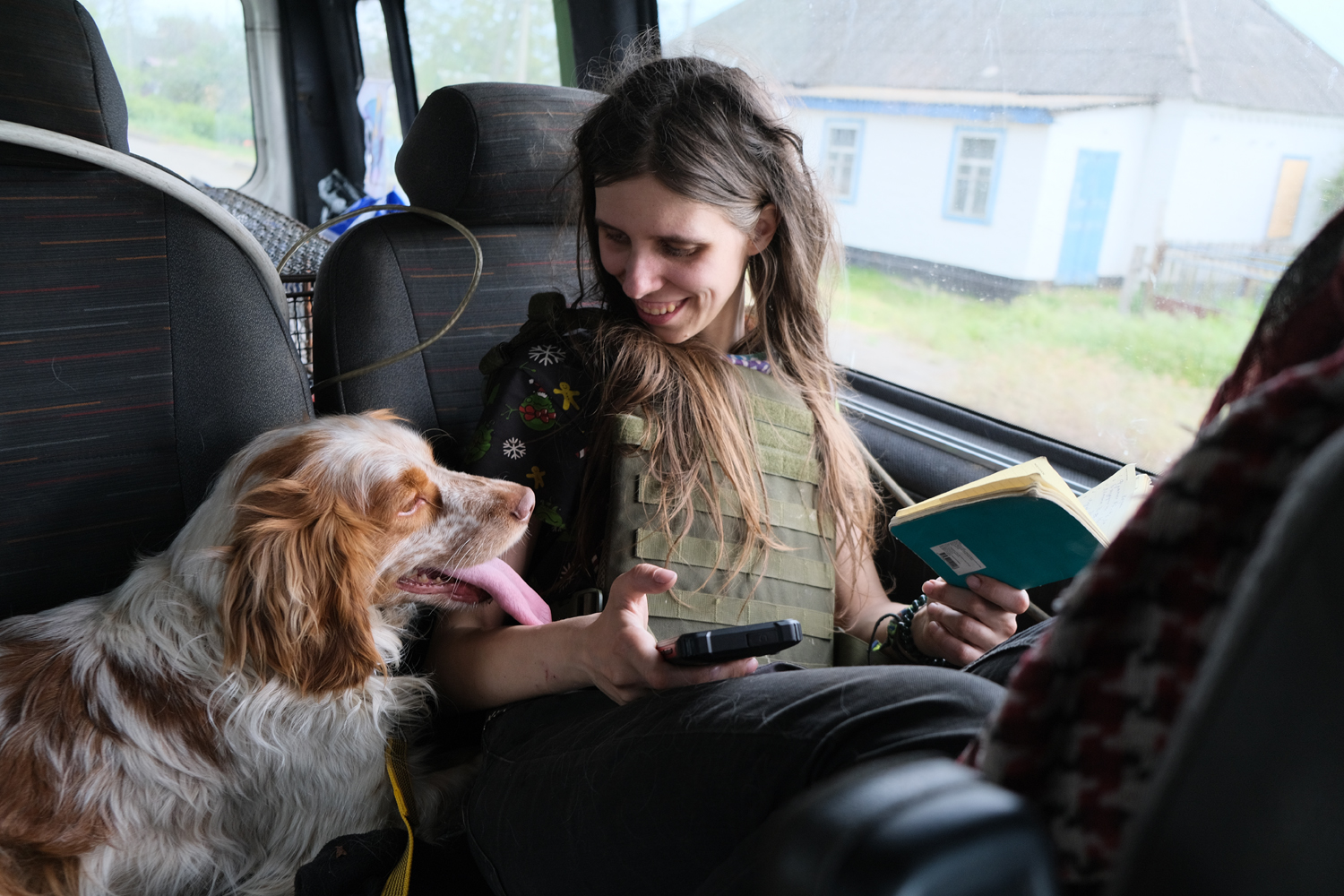
Photo: Vitalii Poberezhnyi.
Many Ukrainian animal protection organisations are adapting to the current challenges. The ongoing war has significantly impacted their operations, shifting their focus to animal rescue efforts. For instance, UAnimals, a humanitarian movement founded in 2016 to combat animal exploitation in circuses, has redirected its efforts to help animals affected by the war since. Their activities now include evacuating animals from the combat zone, providing food and medicine, and rebuilding shelters.
Meanwhile, some organisations were created specifically in response to the full-scale war, driven by the urgent need to address the emerging crisis. ZooPatrol is one such initiative.
Merging the creative industry with animal protection
ZooPatrul started its activities on March 3, 2022, in the second week of the large-scale Russian invasion. Launched as a temporary initiative of three dedicated volunteers, the organisation initially focused on rescuing animals trapped in apartments across Kyiv and its suburbs, as their owners had to evacuate during the rapid Russian advance. By the first anniversary of their volunteer work, the team had opened a shelter in Irpin (a Kyiv suburb, that endured a month-long Russian occupation at the beginning of the full-scale war – ed.), established a patrol service for rescuing stray animals, and set up two veterinary clinics in Kyiv. Additionally, their volunteers regularly conduct humanitarian evacuation missions to de-occupied and frontline areas.
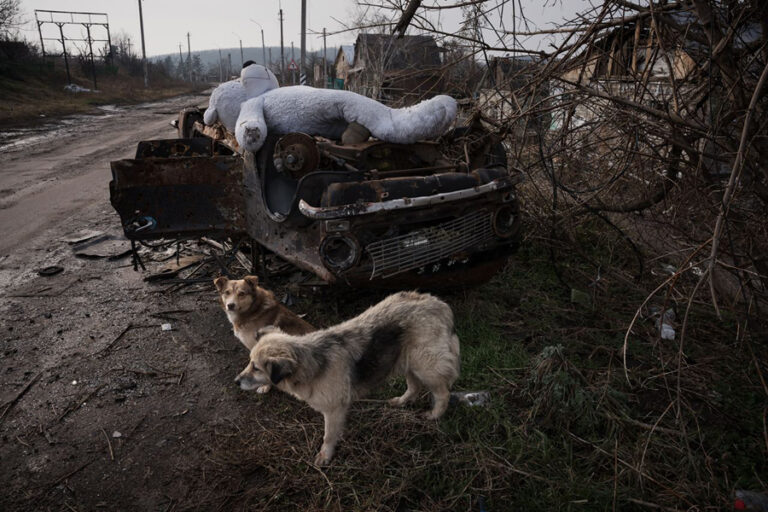
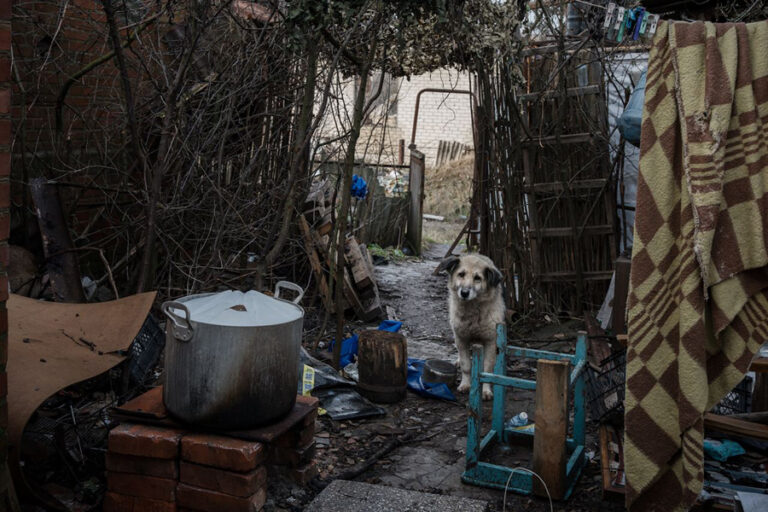
slideshow
The organisation’s founder, Dmytro Revniuk, recalls that the full-scale war found him and his pregnant wife in Kyiv, where they decided to stay. A few days later, an acquaintance who was in another city and unable to return reached out to him.
“She asked me to rescue a dog that had been left alone in her locked flat. Fortunately, I was able to save the dog. At the time, I realised the situation was not unique. Many people had fled in a panic, and their pets could be left alone, locked in their homes without food and water. I posed on social media, offering help in such cases. On the very first day, the post was shared 7,000 times, and within the first three days, I received around 800 requests for pet rescues.”
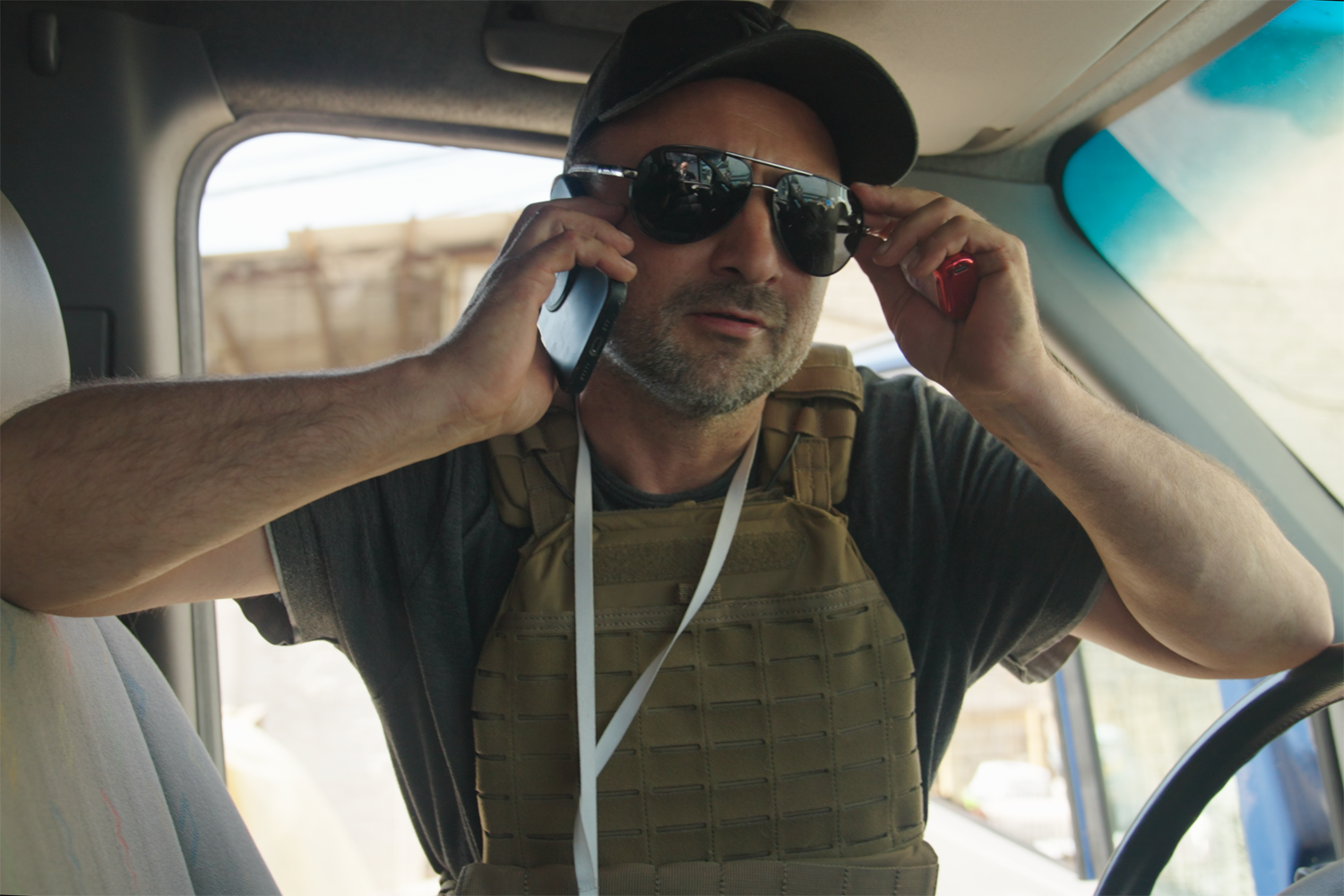
Photo provided by heroes.
Dmytro and his friends initially assumed they would quickly process all the requests and return to their everyday lives. However, upon closer examination, they realised they could do more to help animals affected by the war and the negligence of those who had abandoned them. The founder of ZooPatrul believes that a key factor in the initiative’s development to its current state was the team’s lack of prior connection to animal protection. This allowed them to view the situation from an outside perspective, assess the pros and cons of current efforts in Ukraine, learn from the experience of foreign counterparts, and ultimately develop the best solution.
“Before the war, nearly everyone on the future ZooPatrul team worked in creative fields like film, advertising, video production, or media. I worked as a producer and owned a production company creating commercials. While I continue advancing my career in this field, animal protection has become a vital part of my life.”
How ZooPatrul gets animals back on their paws
According to Dmytro, in 2023, ZooPatrul was recognised as one of Ukraine’s most effective animal protection initiatives, according to the global animal rights organisation PETA.
People for the Ethical Treatment of Animals (PETA)
is a US-based non-profit organisation, established in 1980 to advocate for animal rights and fight against their exploitation.“We rescue and treat animals in Kyiv and the surrounding cities. We also conduct evacuation missions in Donechchyna, Slobozhanshchyna, and Prychornomoria. Sometimes I’m amazed at how we manage to accomplish all this during the war, but we’re trying our best. We have a fantastic team and strong support from the public, for which I am deeply grateful. I think people support us because they see the tangible results of our work, particularly how we put their donations to use.”
In the first months of the full-scale war, ZooPatrul received $52,000 in donations from concerned individuals. Dmytro mentions that the volunteer team decided to invest this money in building the first European-style animal shelter in Ukraine, which was constructed in Irpin.
“We are doing everything we can to ensure this shelter doesn’t become just another ‘concentration camp for animals’ but a convenient and comfortable place. We have drawn inspiration from our colleagues in Germany and the Czech Republic, and I am pleased with our progress so far. We’re not planning to stop here. Even after the shelter opens, we have plenty of plans to keep improving it. We also want to expand our evacuation missions to the newly liberated areas. Currently, we only have one vehicle that can transport food, cages, and animals, so we are actively looking for more transportation options.”
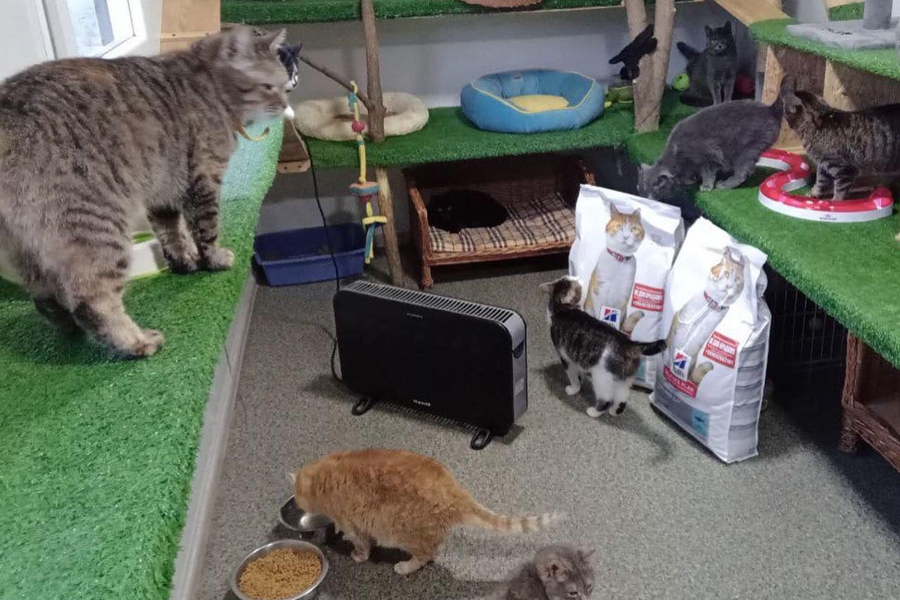
Photo: ZooPatrul's Facebook page.
The ZooPatrul hotline receives about two dozen calls for help every day. In some cases, veterinarians offer advice over the phone. The organisation also provides information about animal adoption and answers various questions, including those related to evacuation. Doctors care for pets at the ZooPatrul veterinary clinic in Kyiv by examining, treating, and vaccinating them. Dmytro says their top priority now is treating severely injured and seriously ill animals.
“The most emotional moments in our work are when we save animals that were considered hopeless. We’ve had several cases where people thought some cats or dogs would never walk again, but our doctors helped them recover. It’s heartwarming to see videos of these animals running around with their new families. On the other hand, the hardest part of our job is when we can’t save an animal despite doing everything we can. You can never get used to that.”
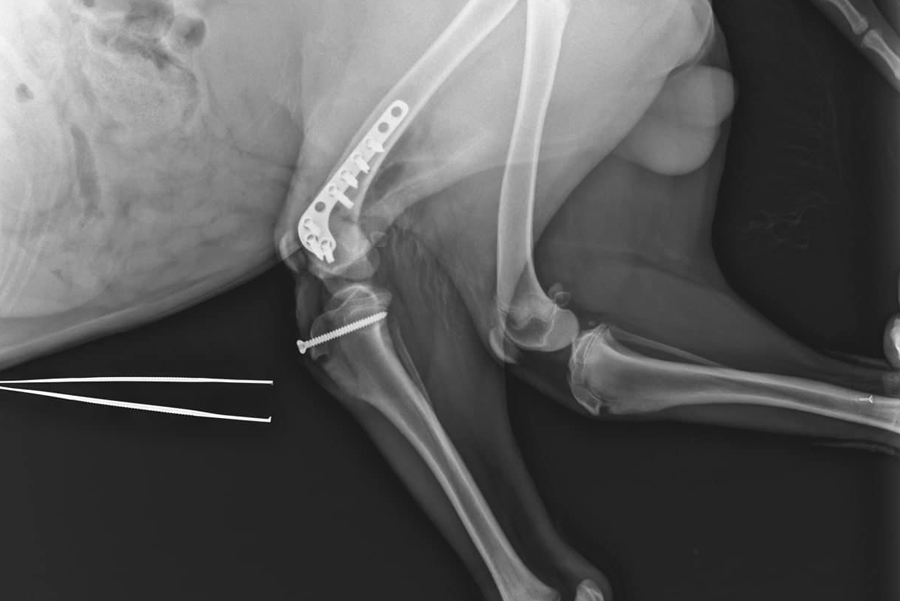
Photo from ZooPartul’s Facebook page
Irena Skakun, the manager of ZooPatrul, says that despite her ambition to save all animals in distress, she sometimes has to turn down requests because of limited resources – whether it’s a lack of space in the clinic or shelter or not having a vehicle available to respond quickly.
“It’s very challenging because we realise the level of responsibility we have. People can get upset, aggressive, and lose their temper with us. It’s unpleasant, but we know we are doing our best and are always looking for ways to improve.”
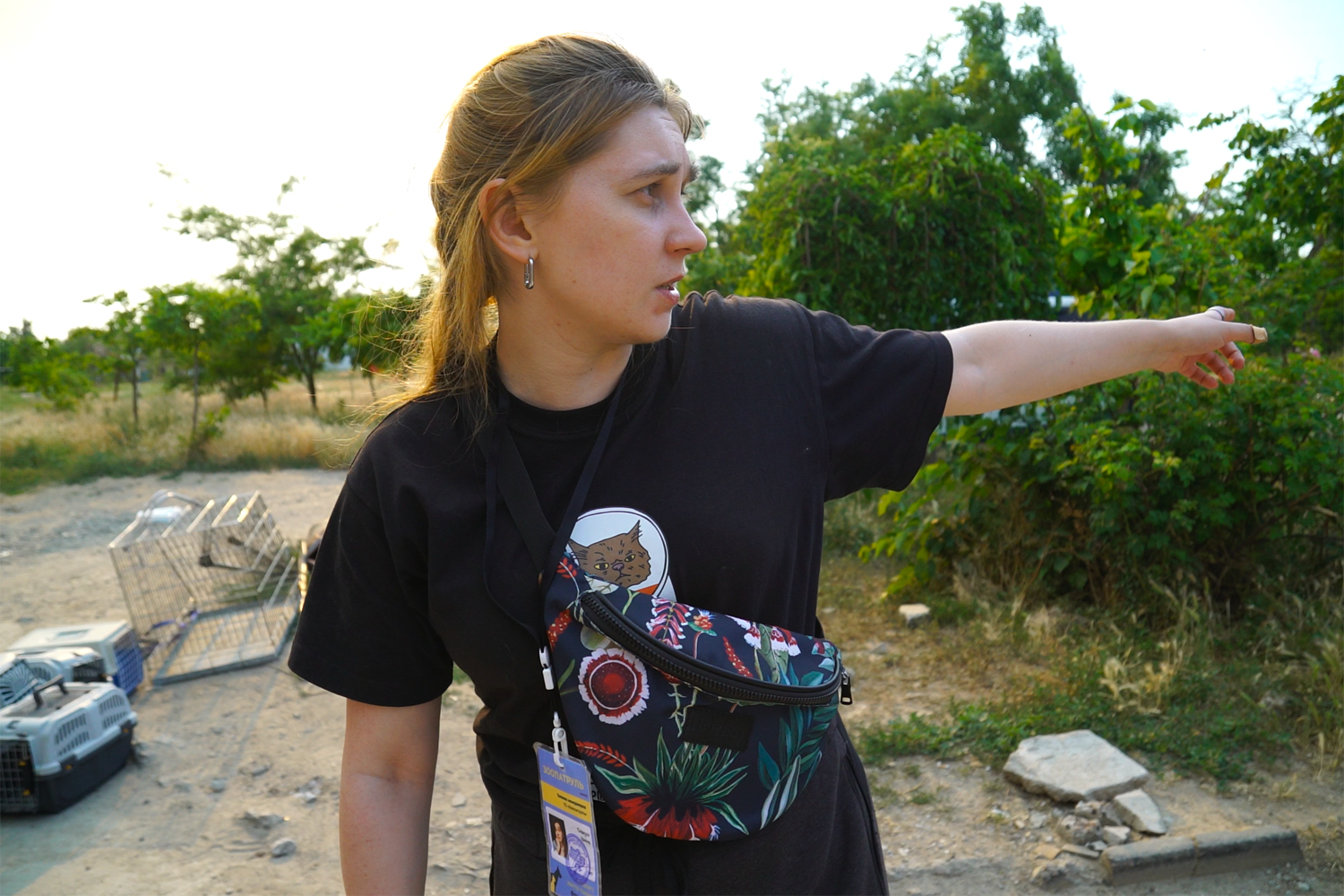
Photo provided by heroes.
Dmytro shares that in March 2022, they received about eight hundred requests for animal rescue. At that time, there were only four people on the team.
“To rescue animals from locked apartments, we had to cut the hinges off the doors, make holes in walls, and climb through balconies. Soon enough, many dedicated volunteers joined us. Our largest team was during the evacuation of animals from the newly liberated towns around Kyiv – we had 24 patrols, each with two people per car. Later, some of these volunteers returned to their regular routines. Now, we have a small but strong team.”
Irena explains that establishing effective communication allowed ZooPatrul to build a large social media community that aids its operations and supports its efforts.
“Sometimes, when you feel burnt out and exhausted, reading comments where people thank us and offer support can lift your spirits and push you to do more and do it better. Nowadays, making a real impact is not just about doing what you think is right – you also need to share it publicly and not shy away from presenting yourself and your work.”
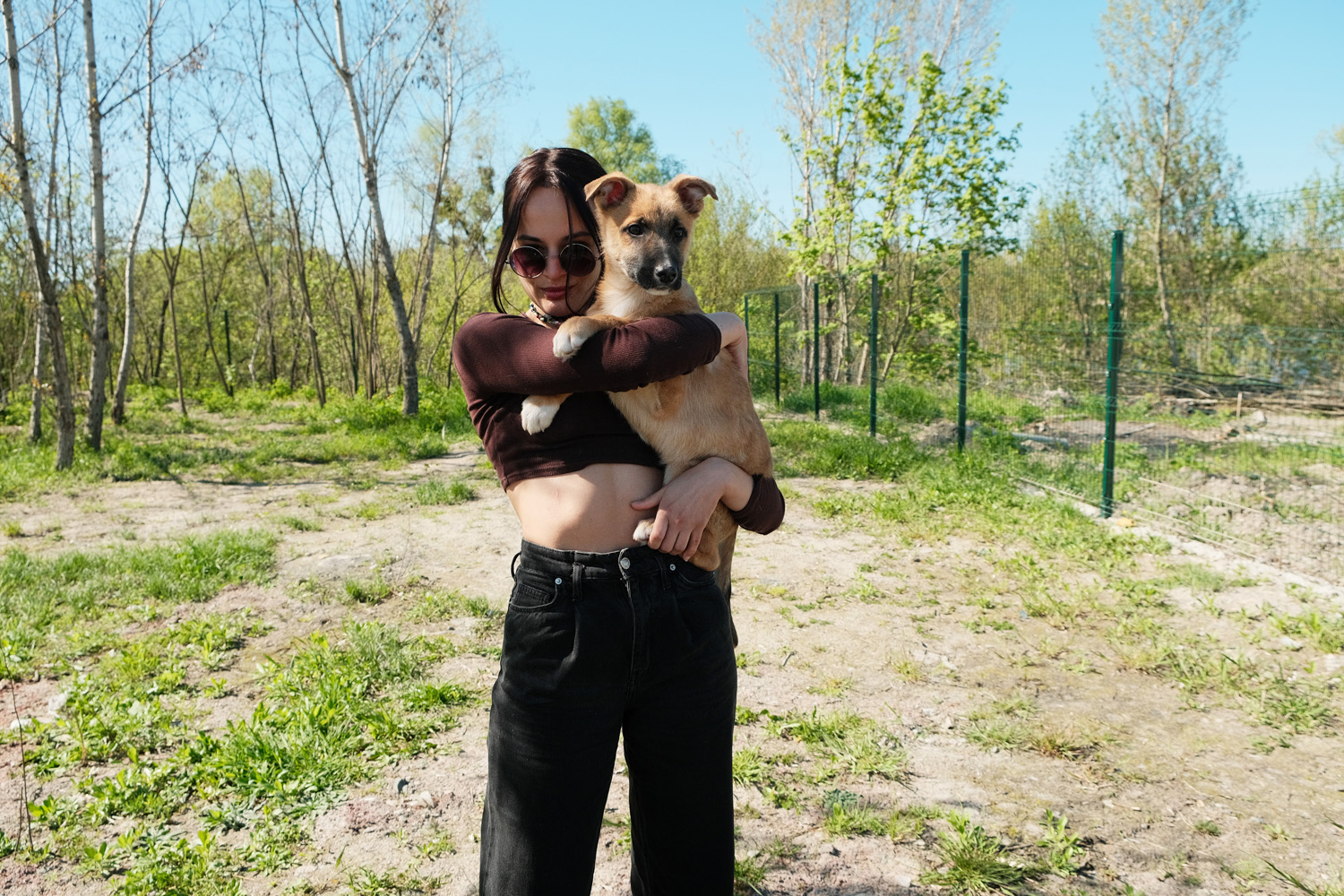
Photo provided by heroes.
An essential part of ZooPatrul’s work involves evacuation and humanitarian missions to the newly liberated and frontline areas. In March 2022, they started with Bucha, Irpin, Hostomel, and Borodyanka (Kyiv suburbs that were occupied at the onset of full-scale invasion and liberated by April 2022 – ed.).
“We received passes to evacuate the animals and distribute food. The animals greeted us eagerly in the first few days, climbing onto our cars and into our arms. A similar situation happened during the liberation of Izyum in Slobozhanshchyna (Izyum was liberated in September 2022 after six months of Russian occupation – ed.). We were among the first responders, seeking permission from local authorities, providing food, and rescuing the animals in need. We also travelled to Sivershchyna with American volunteers and visited frontline towns in Donetsk Oblast. Our next trip took us to Zatoka in Prychornomoria, where the resort town had been heavily shelled, leaving many animals abandoned. ZooPatrul managed to evacuate some of them and left food supplies. We then travelled to the Kherson region after the Kakhovka hydroelectric power station was destroyed.
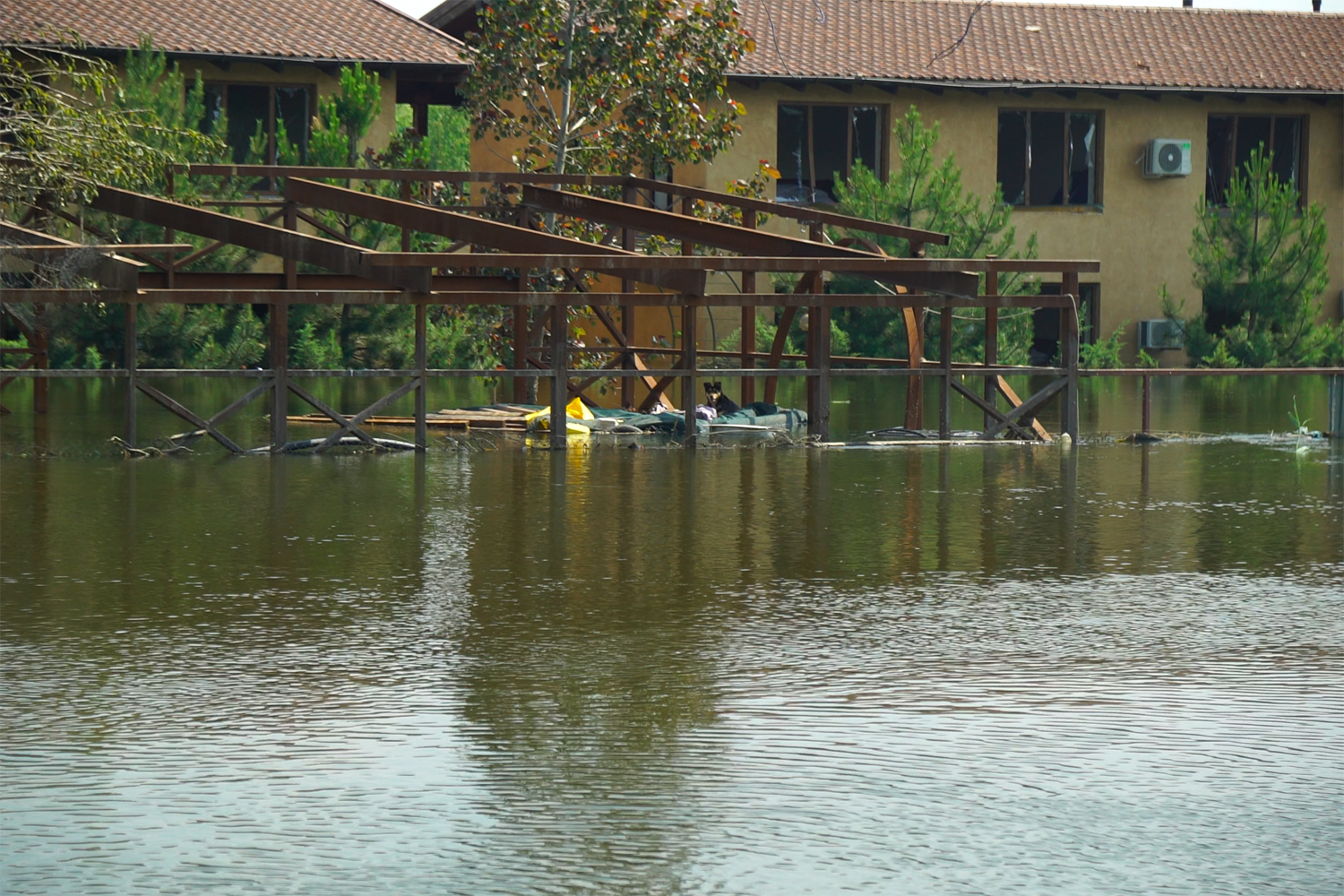
Photo provided by heroes.
Helping animals properly
Dmytro advises those involved in animal rescue and protecting their rights just to take the plunge and start.
“There is no perfect time or opportunity to start. What matters is motivation and willingness to put in the work. Sure, you will face many challenges along the way, and you need to be ready for them. But you will always find the necessary resources when you’re doing something you truly believe in.”
Nataliia Shevchuk, a volunteer with ZooPatrul, suggests that anyone willing to help animals should start by rescuing and finding a home for at least one pet.
“Abandoned animals end up homeless. There have never been enough volunteers to go around, but now, during a full-scale war, the need is even greater. If each of us adopts just one or two animals, it would make a huge difference – a very significant difference.”
After finding an abandoned animal, Nataliia recommends taking it to the vet for necessary treatment. If you cannot keep your pet, she advises against taking it to a shelter due to overcrowding. Animals in shelters often face cramped conditions and lack of exercise, food, and warmth. She also warns against giving homeless animals to places where they will end up on the chain and to organisations that neglect proper adoption rules.
Animal adoption
A practice of taking responsibility for a pet that has been abandoned by its previous owner or given to a shelter or rescue organisation.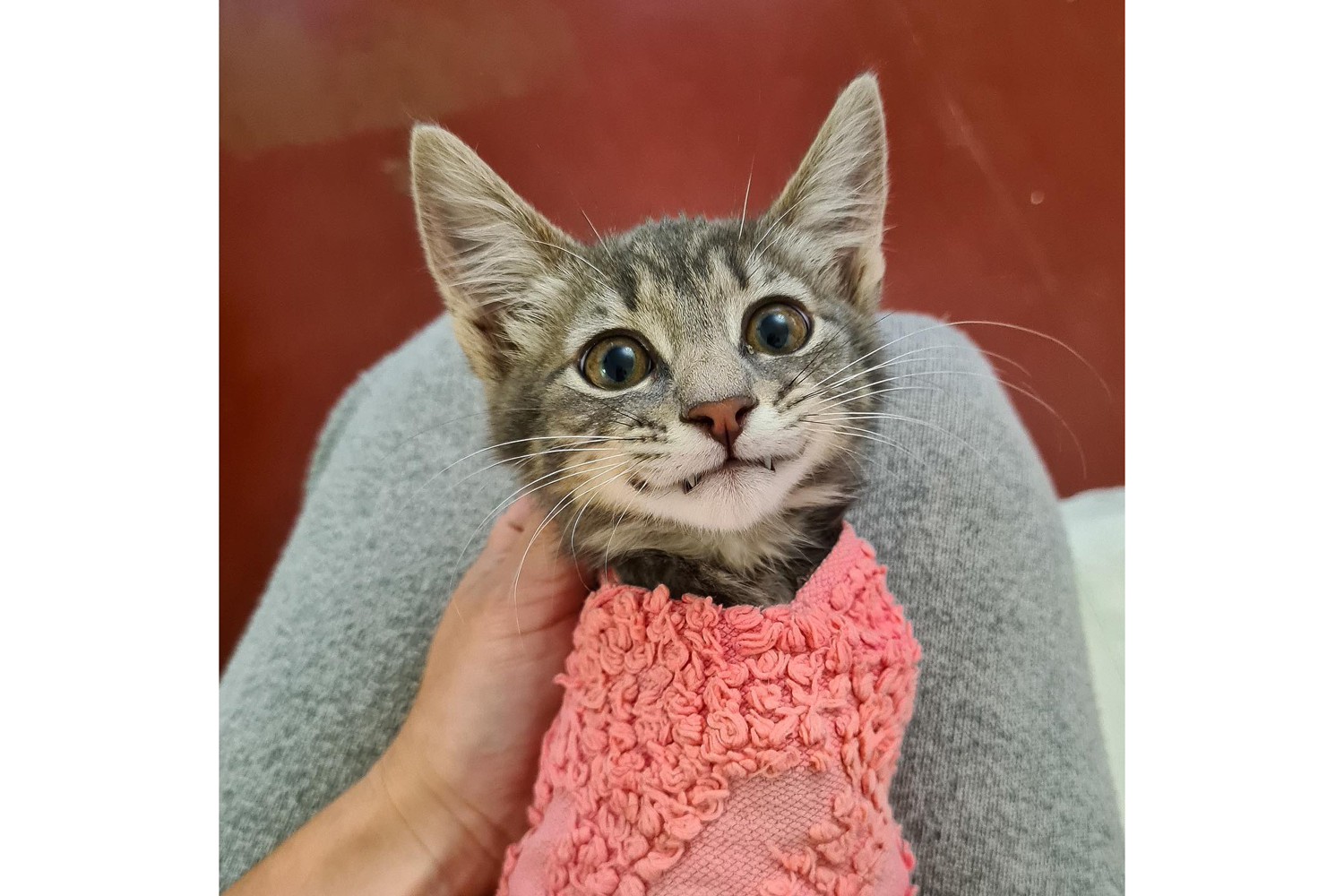
Photo: @dodomy.ua Instagram page
Nataliia believes that finding a responsible adopter for a rescued animal is the best option. This person should realise the importance of sterilisation and regular vaccinations for the animal, and commit to following these procedures. Additionally, they should install anti-bug nets on the windows and ensure that the animal is not allowed to roam freely, as this can make it vulnerable to accidents, predators, getting lost, or contracting diseases.
According to Nataliia, potential pet adopters should be aware that animals require a balanced diet – not table scraps or cheap, low-quality food – and proper veterinary care. Adopting a pet is a significant responsibility, and adopters should be prepared to invest time and money in its care. Nataliia suggests using social media and targeted advertising to find responsible adopters.
“One effective option is to post in themed groups that focus on finding homes for animals, such as “Dodomy”. It’s important to include attractive photos of your animal. You can find excellent examples of both photos and captions in these groups. Also, consider asking your friends and acquaintances to repost and reach out to influencers. With persistence, a few out of 50 requests will likely yield positive results.”
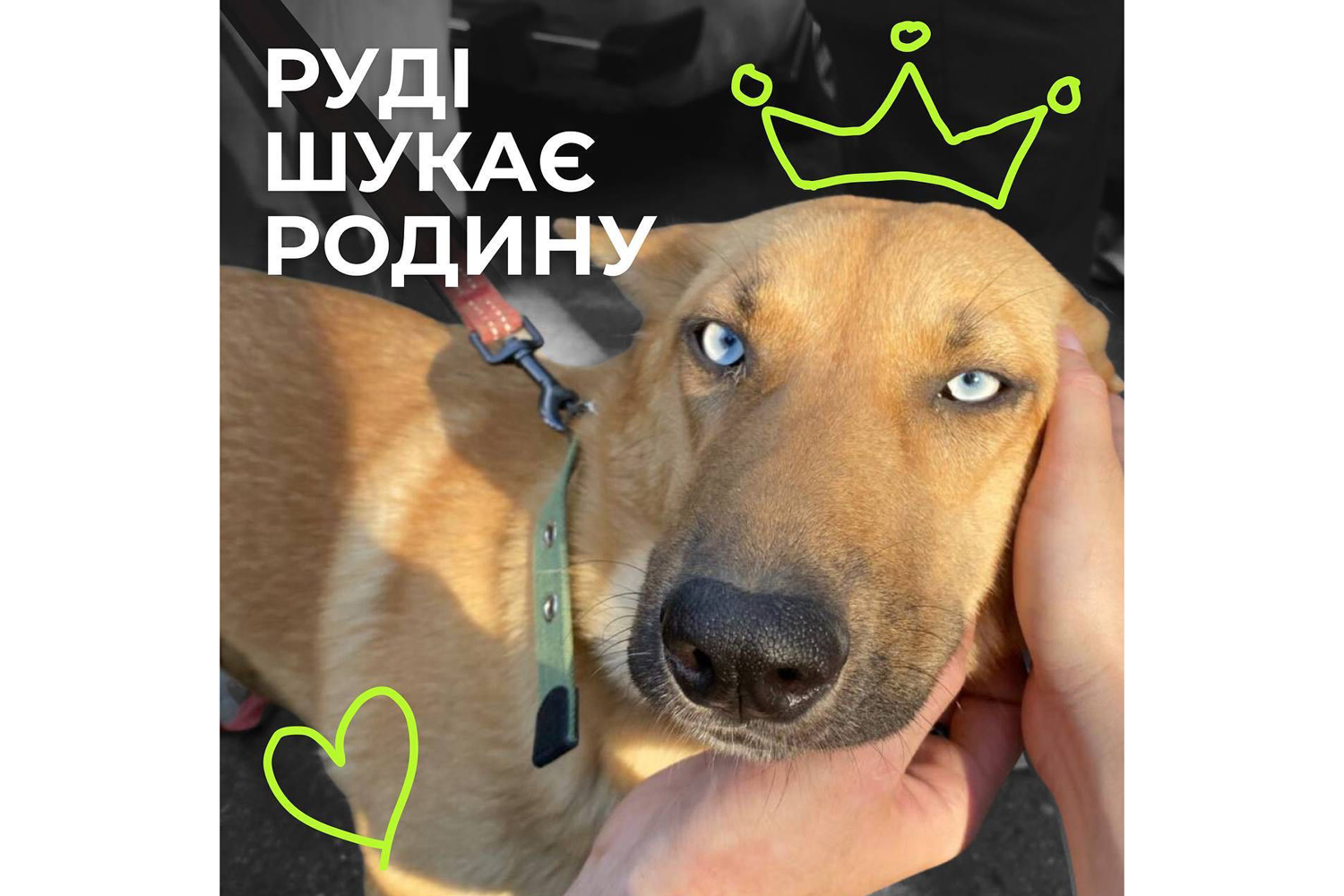
Photo: @dodomy.ua Instagram page
Most European countries don’t have specific legislation requiring pet sterilisation. However, in Spain, adopters are required to sterilise cats to control their birth rate. Similar legislative initiatives exist in Denmark, Belgium, Germany, the Netherlands, Sweden, and Switzerland, where local authorities cooperate with animal rights activists to address this issue. The countries that have successfully managed the stray animals issue have typically done so through sterilisation laws or awareness campaigns supported by animal rights organisations.
Nataliia explains that, in theory, a pair of cats and their offspring can give birth to about 420,000 kittens in 7 years, while a pair of dogs and their offspring can produce about 67,000 puppies in the same period. This underscores the importance of sterilising not only pets, but also stray animals in your neighbourhood. Modern surgical methods make the sterilisation process humane, allowing to address the overpopulation of stray animals in Ukraine efficiently.
“When you breed your pets, you always run the risk that their future owners may not be so responsible, only adding to the issue. If people are truly responsible, they should consider giving a chance to a pet from a shelter or off the street and break this cycle of cruelty. There aren’t enough loving homes for all the pets in need.”
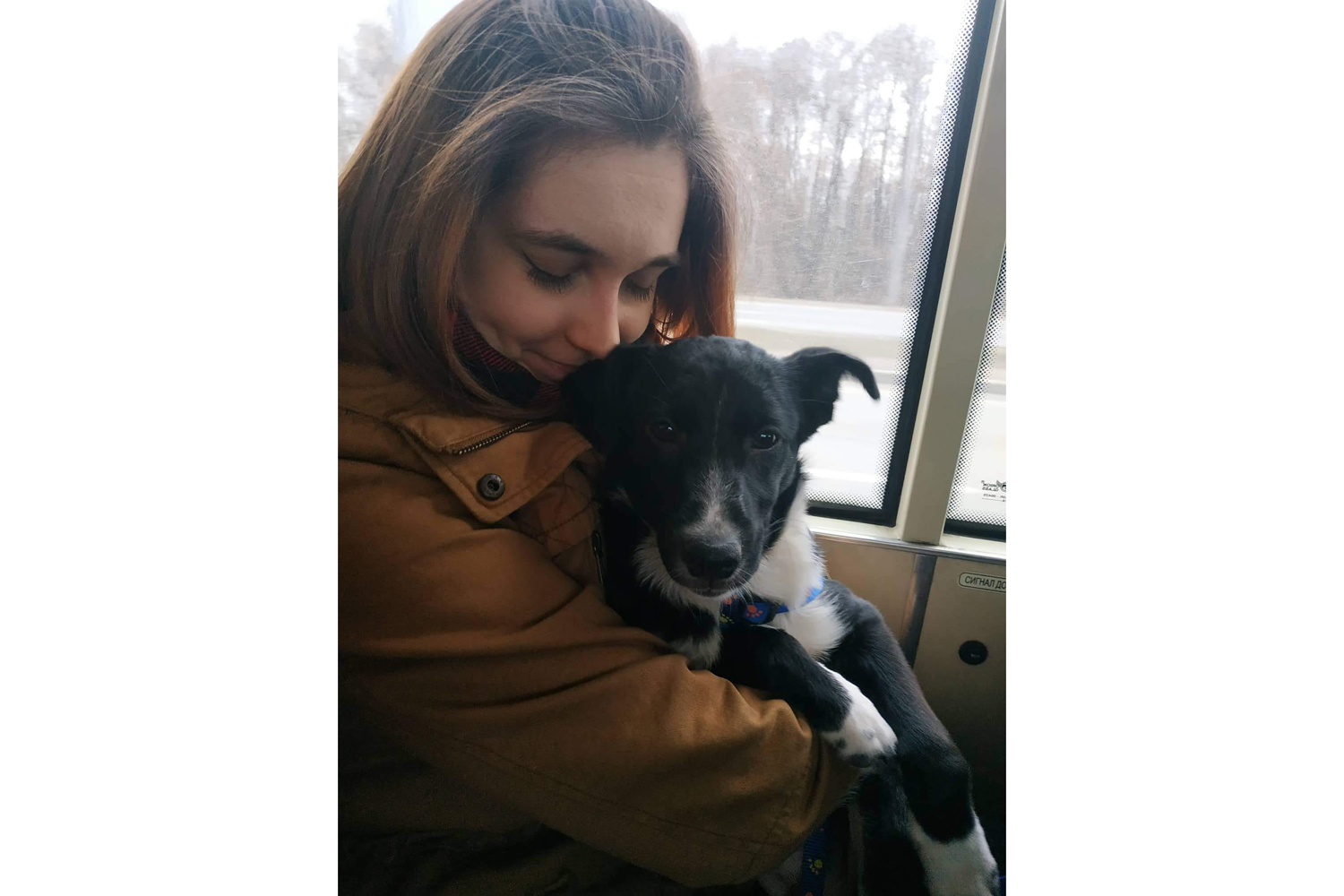
Photo provided by heroes.
Besides the danger posed by shelling, thousands of animals in Ukraine are under threat due to the Russian terrorist attack at the Kakhovka hydroelectric power station (On 6 June 2023, the Russian troops blew up the occupied Kakhovka dam, causing massive flooding – ed.). The flooding affected numerous animals besides pets. For instance, a deer got stuck in a yard in the village of Antonivka, eight kilometres from Kherson, and had to be rescued – unlike many similar stories, which didn’t have a happy ending. Despite the scale of the challenge, Ukrainians came together to help these animals. The ZooPatrul team travelled to Kherson to evacuate the animals and support local communities. With the help of colleagues and volunteers, they managed to evacuate about 200 animals. ZooPatrul veterinarians examined the rescued animals, provided initial treatment, and nursed them back to health.
“ZooPatrul’s mission is to rescue, treat, rehabilitate, and rehome animals. The adoption department meticulously reviews applications to ensure that animals are placed in loving and responsible families,” reveals its founder.
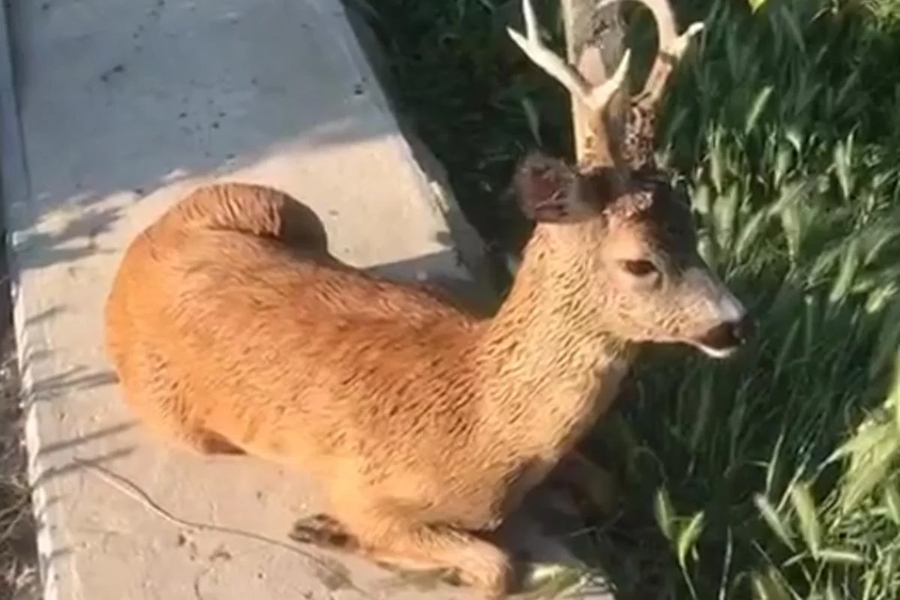
A small deer was rescued in Antonivka after being swept away by the explosion of the Kakhovka hydroelectric power station: a screenshot from the video.
If you want to support ZooPatrul, you can contact them through their Instagram page or website. On the website, you can also adopt a pet by selecting an animal after completing an interview, meeting the pet, and signing a commitment contract for its care.

